Nahida Ashrafi. Photo: Rahnuma Ahmed
Tag: Economy
The Price of Social Distancing
Rahnuma forwarded me Laily’s wrenching FaceBook post. Her father is dying, far away in a UK hospital. Heart breaking, holding back tears, she and her family watch from afar. Unable to touch, to hold, to caress the person who is dearest to them. This is what Corona means in real terms. It was through her research on one of my heroes, the peasant leader Abdul Hamid Khan Bhashani, and later through them staying at the Pathshala Guest House, that we got to know her. Bhashani’s principle of putting nation before self and his simple lifestyle is a very distant reality from the ruling politicians of today. Despite its pain, Laily’s post reminded me of my own dad and my childhood. I remembered dad resting in his easy chair. His belly just the right slope for us kids to use as a living slide. We used to call him bhalluk (bear), and every day as he rested after lunch, my cousins and I would line up behind the easy chair, clamber up to his shoulders and slide down his belly. Mum would freak out, as my dad had osteomyelitis as a child and had never fully recovered. His shins were always exposed and very fragile. Quite apart from wanting him to rest, the idea that we might aggravate his injury worried her. Abba was unperturbed, happy to be teddy bear to a room full of kids. We’d run back to the end of the queue to slide down again. We were always tired before Abba ever did. We didn’t think of it as physical contact in those days. When Abba died, I remember feeling the stubble that had grown on his soft skin, as I stroked him before we laid him down.
Newcomers to Bangladesh are overwhelmed by the generosity of our village folk. They love it when strangers clasp their hands, but are somewhat unsure when seconds, sometimes minutes pass, before their hands are reluctantly released. Years ago, when we at Drik were trying to improve our English skills, we struck a deal with the local office of the British Council. Unable to pay for the expensive English classes, we negotiated a barter. We would do their photography. They in turn, would teach us English. It wasn’t just language skills though, it was learning English culture. One of the first things our English teachers told us was to release the hand quickly! Prolonged physical contact could make the English squirm.
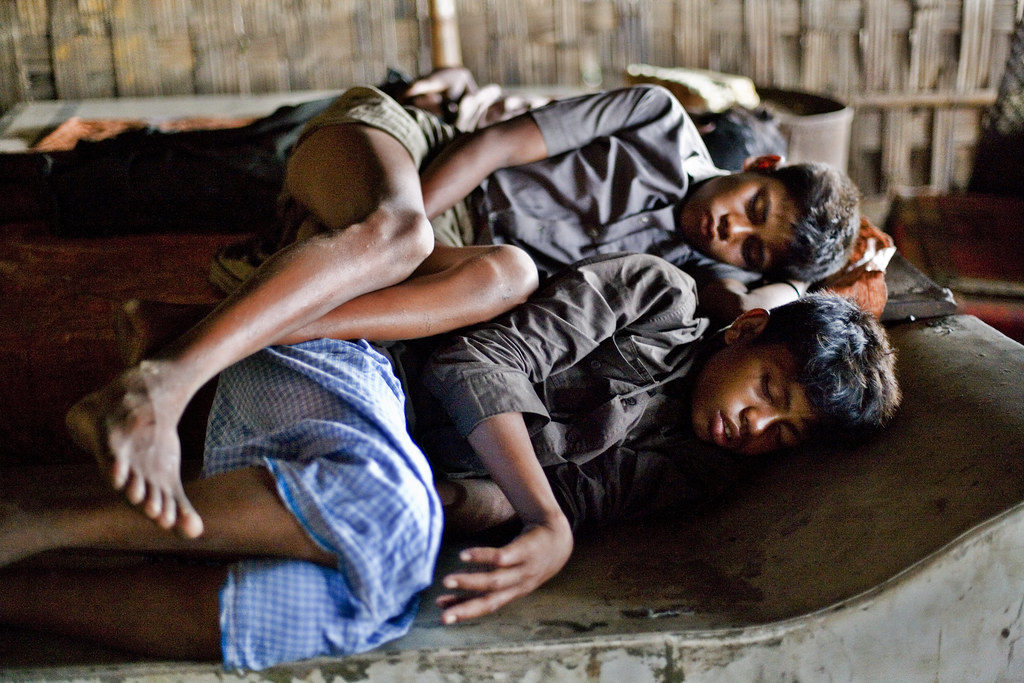
Looting in the Time of Corona
The Jamuna TV report was disturbing. The CNG drivers are desperate. Rikshaw driver Nazrul from Kurigram waits forlornly for a passenger. Another waves the 30 taka he has earned. Face taut, eyes glazed he stares from his perch. ‘Will this 30 taka feed me or feed my wife?’ he asks angrily. The roadside shopkeeper doesn’t have customers, but there is no respite from the rent, or the ‘chanda’ (protection money) he has to pay the local ruling party thugs. Roadside restaurants feed these workers. Yes, close contact is risky, and the far from ideal washing arrangements, signals a high risk of contagion. But they have little choice. Death by starvation is no better a choice than death by virus. ‘God will save us,’ one of them says, ‘what other hope do we have?’ The kids who work in the restaurants get ‘food for work’ in a very literal sense. They draw no wages. When there is work, they get fed. He’s a plucky kid. Putting up a brave face to the fact that today he’ll go hungry. No promises for tomorrow. Lockdown, hand wash, drinking lots of water, social distancing. I recognise the importance of these fancy terms. But what does that mean for the 67 million day-labourers of Bangladesh to whom water itself is a luxury?

Continue reading “Looting in the Time of Corona”
Not Just Another Brick In The Geopolitical Wall
Justice Still Elusive in Factory Disasters in Bangladesh
by Jim Yardley. The New York Times
DHAKA, Bangladesh ? Inside Courtroom 21, the two judges peered down from high wooden chairs as lawyers in formal black robes presented their motions. Activists and victims watched from the back. And a few steps away, a portly man with a thick black beard remained silent. He was the suspect. He did not seem especially nervous. Continue reading “Justice Still Elusive in Factory Disasters in Bangladesh”
Dawn-to-Dusk Opposition Strike
Photos by Monirul Alam, text by bdnews24.com
The opposition enforced countrywide shutdown protesting against the latest hike in fuel oil prices began on Sunday amidst tight security necessiated by incidents of explosions and vandalism yesterday evening.
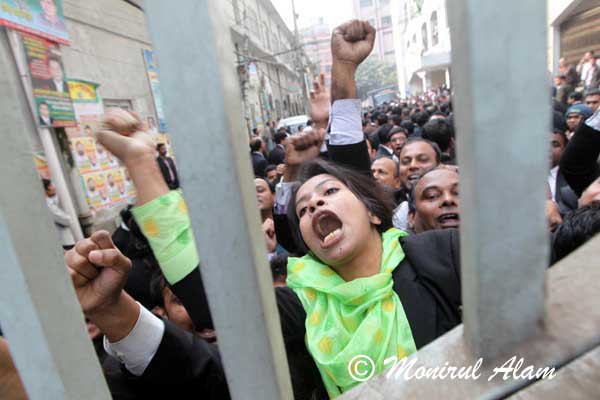
The government on Thursday increased prices of octane, diesel, petrol and kerosene for the fifth time in four years, despite a threat by the opposition alliance to enforce a strike within a day of the hike.
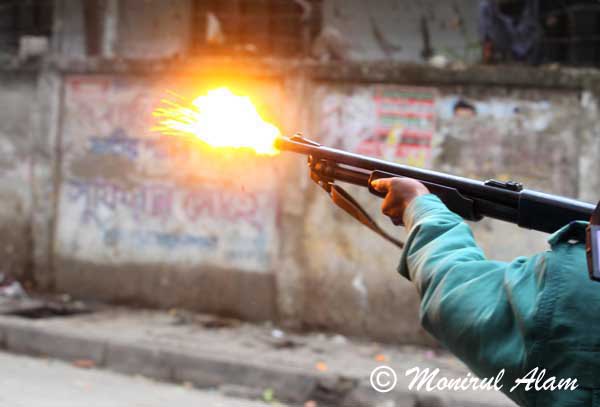
Incidentally, the shutdown has come on a day when the ruling Awami League led coalition completes four years in office.
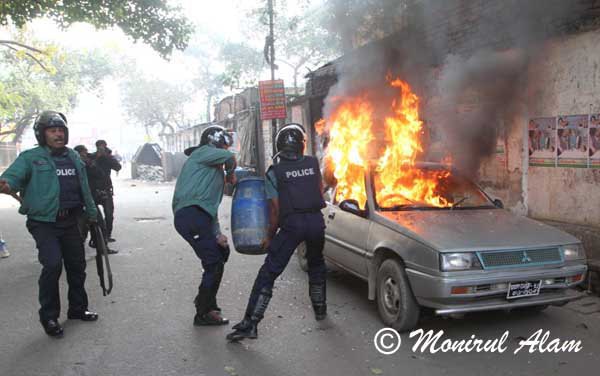
Dhanmondi Brickbreakers on Vimeo
Dhanmondi Brickbreakers on Vimeo
The traditional form of brick breaking has now been replaced by machines that do the bulk of the job. As with most low paid jobs in Bangladesh, there are many associated risks.
We
We!
The children are reduced to bones
And skin. Their tiny bodies
Have heads appearing far too large
And eyes that cry for help.
But there’s no shortage yet of guns
And bullets — or of bombs.
And soon enough, you hear them come —
The jets that scream through skies
And drop the rain that’s so obscene
That voices then fall still.
******
The drones that fly like sightless birds,
The tanks that roll through streets,
The men who fire on passers by,
Who buys and pays these?
We!
****** Continue reading “We”
Bangladesh opens its gas fields to US company
Saturday, 31 December 2011 09:45 David Bergman
 The United States?multinational?energy company?ConocoPhillips?will soon start looking for gas in a deep offshore area in the Bay of Bengal.
The United States?multinational?energy company?ConocoPhillips?will soon start looking for gas in a deep offshore area in the Bay of Bengal.
With a short fall in the supply of gas and with declining reserves, the?Bangladeshi?government is desperate to find new supplies of gas.?It is the first time that the government has opened up its offshore territory to foreign exploration.?However, some are criticizing the government for signing this new deal with an international oil company.
David Bergman?hears?from both sides.
Bangladesh not only uses gas to fire its power stations to produce electricity; gas has also become essential for many other parts of its economy.
Ijaz Hossain, is one of the country?s leading energy experts and a director of the country?s own gas exploration company, BAPEX. Continue reading “Bangladesh opens its gas fields to US company”
Bangladesh in the Brazilian Amazon
By Gabriel Elizondo in Americas
Aljazeera
Wed, 2012-01-11 03:55.
In the northwest Brazilian Amazon town of Brasileia, population 20,238, there are almost 1,200 Haitians.
They often mill around during the day, clustered in groups in the shade trying to keep cool from the steamy heat, waiting for weeks for their work documents to be processed so they can get a job in another part of Brazil.
But on Tuesday it was the two other guys sitting alone who caught my attention. They could have been Bolivian perhaps, or even Brazilian. But I knew they weren?t.
?We are from Bangladesh,? AHM Sultan Ahmed, 36, tells me with a smile when I approach and ask to talk with them.
His friend, Abdul Awal, and my photojournalist, Maria Elena Romero, and I, all sit together on the grass and begin to chat.
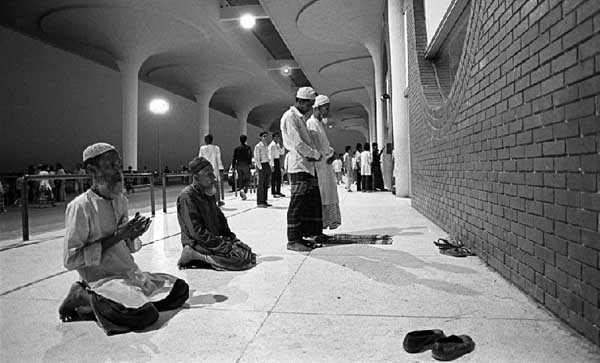
They are from Dhaka, and arrived in Brasileia the night before. They slept on the ground in the main plaza, having nowhere else to go. For obvious reasons, they look tired, but still muster the energy to smile wide and often.
Why did you come to Brazil?
?I heard Brazil?s economy is growing, and that here is good for us and good jobs,? Ahmed says. ?Soon we can hopefully get our papers and find a job. I am happy?
?I think there is a lot of work in South America now, and a lot of people from my country are wanting to come here now,? he continues.
Neither has been to Brazil before, nor speak a word of Portuguese.
Continue reading “Bangladesh in the Brazilian Amazon”




